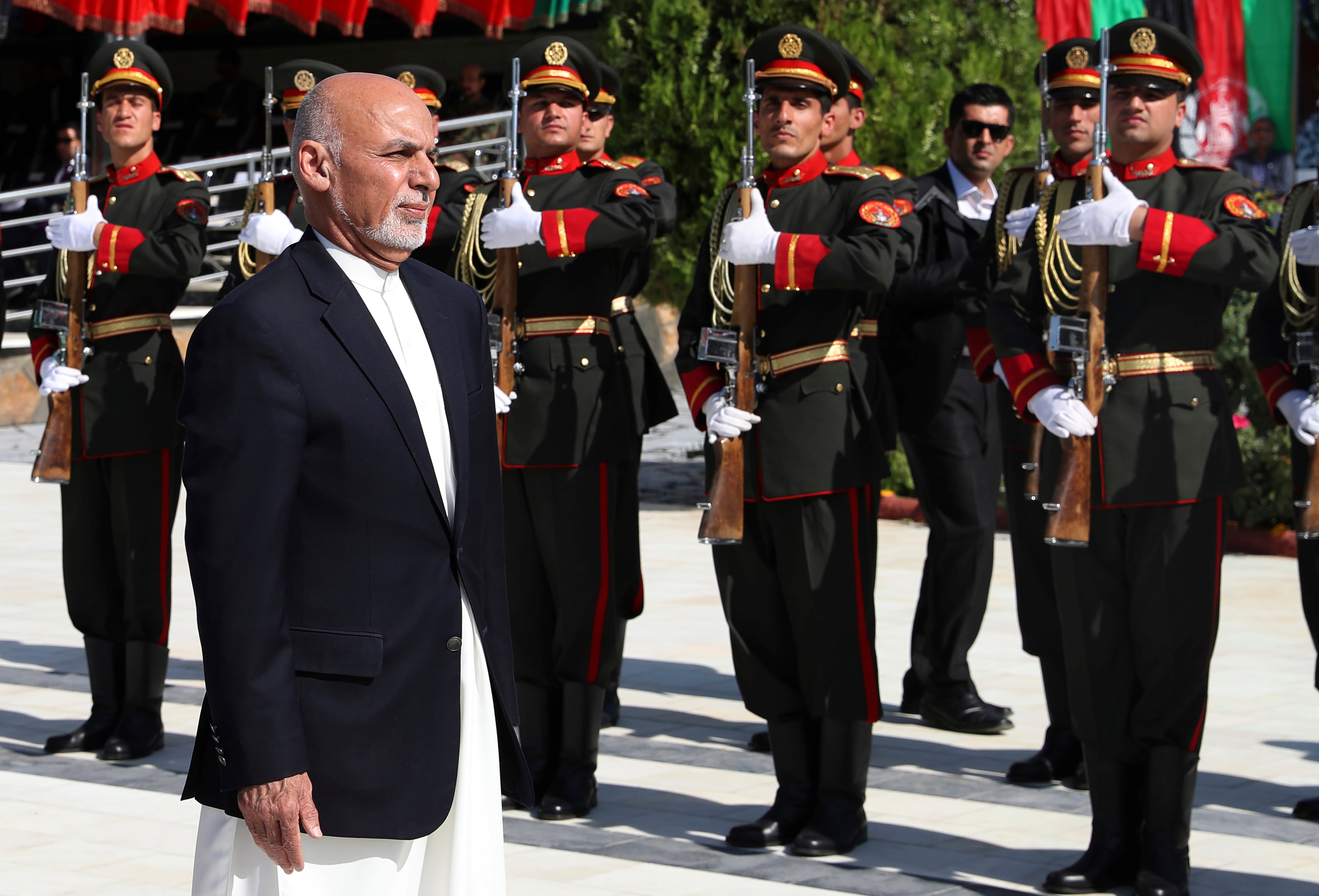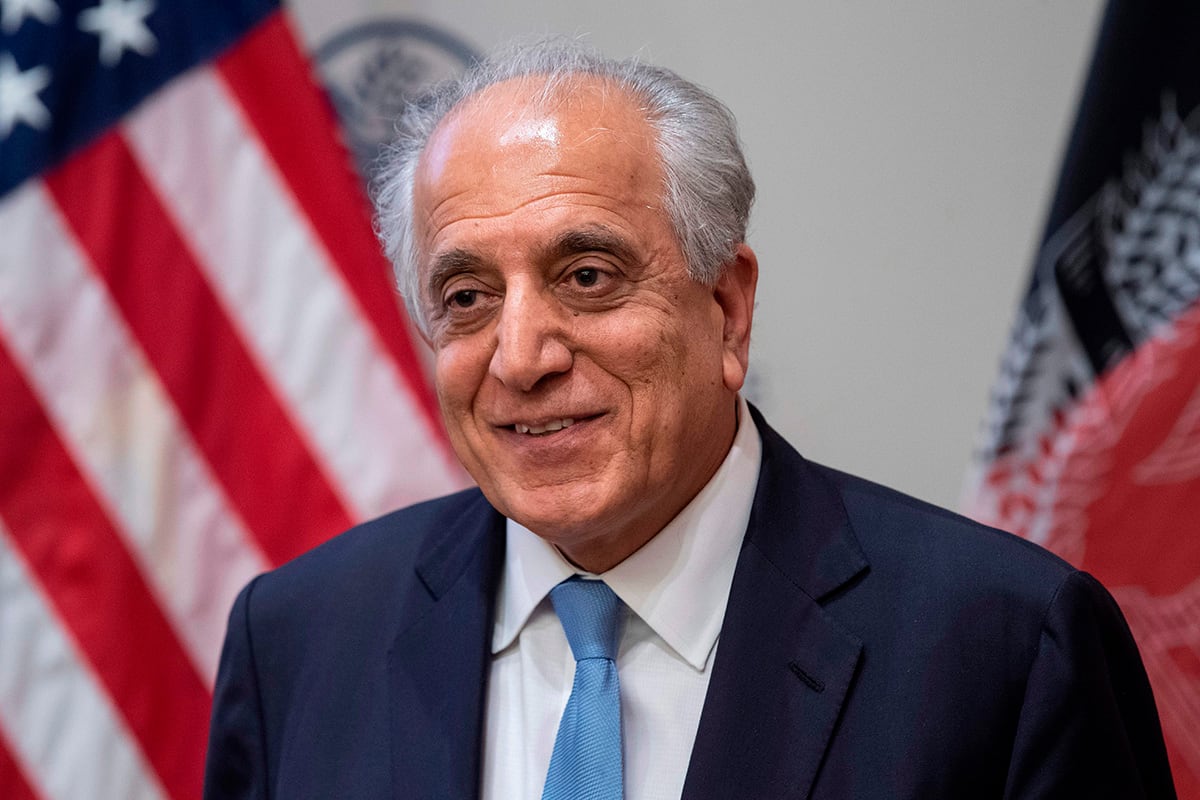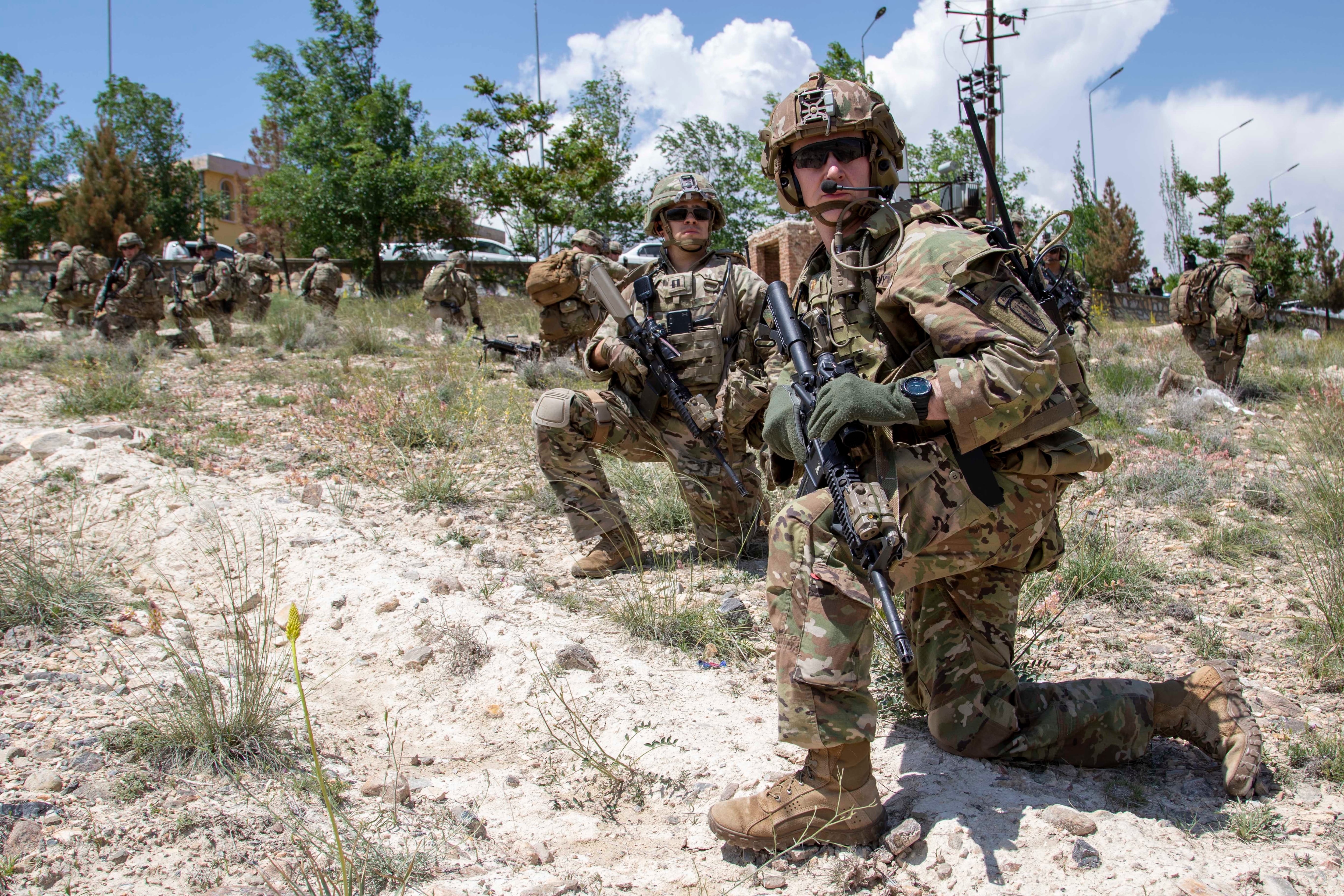President Donald Trump vowed he will bring home some — but not all — of the U.S. military force currently deployed to Afghanistan, amid reports of ongoing negotiations with Taliban leaders on an end to the nearly 18-year-old war.
“We’ll always have intelligence and we’ll always have someone there,” Trump said during an unscheduled press conference with Romanian President Klaus Iohannis on Tuesday. “That does seem to be the Harvard University of terrorism. So we’ll always have someone there.”
Amid questions from reporters, Trump confirmed reports that U.S. officials are discussing withdrawal plans with both the Taliban and Afghanistan government officials. About 14,000 U.S. troops are currently stationed in the country.
RELATED

Trump signaled that his preference would be a full withdrawal of American personnel from the country, but “it’s a dangerous place, and we have to keep an eye on it.” But he also called the open-ended U.S. military mission there “ridiculous” and said changes must be made.
“We’re not really fighting, we’re more of a police force … and we’re not supposed to be a police force,” he said.
“As I’ve said several times, not using nuclear, we could win that war in a week if we wanted to fight it. But I’m not looking to kill 10 million people. I’m not looking to kill 10 million Afghans, because that’s what would happen.”
Asked if Taliban negotiators will honor any agreement, the U.S. president responded “nobody can be trusted” but added that “the Taliban would like to stop fighting us” because of the casualties they have suffered.
“The Taliban does not respect the Afghan government,” he said. “They haven’t been exactly getting along for a long time. But we’ve been a peacekeeper there for 19 years, and at a certain point you have to say ‘That’s long enough.’
“I go to Walter Reed and I see young men that stepped on a bomb, they lose their legs or lose their arms, and in some cases they lose both and their face on top of it. And they’re living.”
RELATED

Trump made similar pledges to end the military mission in Afghanistan during his presidential campaign but increased the number of troops deployed there after taking office on the advice of Pentagon officials. He has also said that Defense Department leaders have opposed his plans to bring more troops home.
Earlier in the week, in response to concerns from critics that the president may adopt too aggressive a withdrawal schedule, Secretary of State Mike Pompeo said that the goal of the talks is to find “a comprehensive peace agreement, including a reduction in violence and a ceasefire, ensuring that Afghan soil is never again used to threaten the United States or her allies.”
Leo covers Congress, Veterans Affairs and the White House for Military Times. He has covered Washington, D.C. since 2004, focusing on military personnel and veterans policies. His work has earned numerous honors, including a 2009 Polk award, a 2010 National Headliner Award, the IAVA Leadership in Journalism award and the VFW News Media award.




